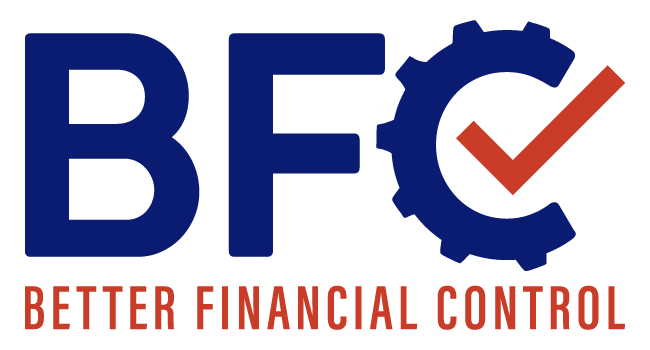Creating an effective business operating system (BOS) as the foundation of any organisation is essential, especially from the perspective of a chief financial officer (CFO).
It is often overlooked or misunderstood, but optimising your own BOS can benefit your business in numerous ways.
A well-honed BOS ensures that each staff member is working to their best potential; it refines cash flow to ensure greater cost efficiency, creates a stronger and more cohesive management team, and aligns your business objectives so that every staff member is working towards the same goals.
Over the next seven weeks, I will be taking you through every step required to ensure that your BOS is optimised to fulfil its greatest potential. This program outlines the key stages in identifying, implementing, disseminating, and refining your Business Operating System in a way that is accessible and manageable.
While aspects of these modules may sound familiar, they will be presented concisely to provide you with a simple and visible operating system to manage all aspects of your company.
Most businesses can benefit greatly from identifying and internalising a framework or operating system for organising their company management and execution disciplines in a way that feels both sustainable and manageable – one that frees up business owners and CFOs to utilise their strengths in the pursuit of their objectives.
It is also important to point out that in any business, the end goal is to achieve defined objectives. The specific objectives will obviously vary greatly and what you specifically want to achieve is not the focus of these modules. The focus is to give you a more effective operating system with which to achieve your objectives.
Let me ask you this: when was the last time you felt overwhelmed or anxious dealing with all the financial aspects of running your business? It’s like trying to keep five heavy plates up in the air at one time – and for a long time! Yet if you look for help, you can certainly find it. There are thousands of business books published every year on countless topics. So our challenge is not a lack of information or strategies – it is more about actually being able to execute or implement strategies we already know we should be leveraging.
![Creating an Effective Business Operating System [Part 1] 10 Business Operating Strategy](https://betterexecute.com/wp-content/uploads/2023/04/AdobeStock_305923028.jpeg)
![Creating an Effective Business Operating System [Part 1] 10 Business Operating Strategy](https://betterexecute.com/wp-content/uploads/2023/04/AdobeStock_305923028.jpeg)
The aim of these modules is to provide you with an effective model for managing all parts of your business – we call this your Business Operating System or BOS for short.
Your specific BOS will allow you to see the management playing field as a whole and select specific parts of your company to focus on while not losing attention of all of the operating requirements.
Moreover, it will show you how to execute or implement initiatives in an iterative way so you can select work that is obtainable rather than biting off more than you can chew and experiencing yet overwhelm and another failed implementation effort.
That said, here are the Module Objectives:
1) Provide you with a strategy to generate better execution results (get more done in a shorter amount of time)
2) Develop a stronger team (a team who understands, is universally motivated, and has the ability to do the required work)
3) Create a More Valuable Company by being able to demonstrate a proven framework for strong ongoing company performance.
OK, let’s start creating these results! Be sure to complete this quick five-question survey on how you currently rate your company’s five management disciplines:
Rate Your Company’s Current 5 Management Disciplines:
- What is the strength of your company’s planning discipline? How is past performance reviewed and what specific updates are made to execute plans? How often are these reviews conducted?
- How well can you determine that you have the right people in the company? Can you provide examples of how you ensure they are clear on their accountabilities?
- How strong are the structure and content of your weekly management meetings? How well do they contribute to overall company performance?
- How well do you currently measure company and team performance? What specific metrics are used, and how are they tracked and reported? How are forecasting components incorporated into these metrics?
- How well are performance standards defined and communicated within the company? How do you ensure that employees are trained and managed effectively in these standards? Can you provide examples of how this has been successful in improving performance?
I will be sharing each module over the coming weeks, so make sure you check back in to continue your journey to an effective Business Operating System.
Until next week, enjoy the process!

![Creating an Effective Business Operating System [Part 1] 1 Bfc Graphics](https://betterfinancialcontrol.com/wp-content/uploads/2023/05/BFC-Graphics-1400x796.jpg)
![Creating an Effective Business Operating System [Part 1] 2 Bfc Graphics](https://betterfinancialcontrol.com/wp-content/uploads/2023/05/BFC-Graphics-703x400.jpg)
![A Consistent Approach to Clarifying Your Business Strategy [Part 2] 3 Business Strategy](https://betterfinancialcontrol.com/wp-content/uploads/2023/03/BFC-Graphics-1-704x400.jpg)
![A Consistent Approach to Clarifying Your Company Strategy [Part 1] 4 Bfc Graphics](https://betterfinancialcontrol.com/wp-content/uploads/2023/03/BFC-Graphics-704x400.jpg)



![CrossFit for Your Business: A 3-Step Guide to Organise Your Business [part 3] 8 Organise Your Business](https://betterfinancialcontrol.com/wp-content/uploads/2022/11/5E5016F7-FE2E-42D8-AE63-37599B23E01B-704x400.jpeg)
![CrossFit for Your Business: A 3-Step Guide to Business Organisation [part 2] 9 Company Organisation](https://betterfinancialcontrol.com/wp-content/uploads/2022/11/BFC-Graphics-29-704x400.jpg)